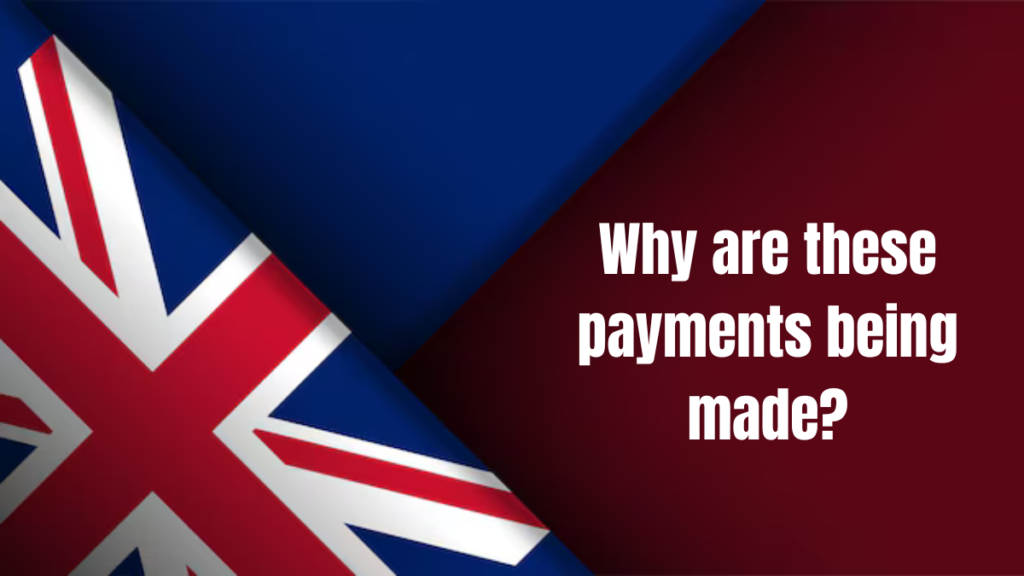Thousands of UK residents could receive up to £12,000 in back payments under a landmark scheme. The scheme, which is being run by means of the Department for Work and Pensions, is to correct outdated and wrong payments beneath the Personal Independence Payment (PIP) and the State Pension.
WP’s £12,000 Compensation Scheme:
If you have heard about the WP’s £12,000 compensation scheme recently, you should not be surprised to know that it is not a rumor. It is part of a larger reform process being run by the WP. Thousands of people could benefit from the scheme, with some individuals receiving up to £12,000 in compensation. The scheme is mainly to correct outdated and incorrect payments under the Personal Independence Payment (PIP) and the State Pension.
Many people have been wrongly underpaid in previous years. This was due to incorrect assessments, administrative errors, and misinterpretation of eligibility rules. Under this reform plan, individuals will now be paid the correct amount of money they did not receive before.
Why are these payments being made?

MM Decision: An important decision on Personal Independence Payment (PIP) was made by the Supreme Court in 2019, known as the “MM Decision.” This decision determined that the assessment of social assistance under PIP did not correctly assess the help individuals with mental health, autism, or learning disabilities receive.
The decision makes it clear that support in social interaction can be received from a friend, family member, or professional, without the need for a trained therapist. Thousands of PIP claims have since been reassessed, and if you should have received benefits but did not, you will now be paid the correct amount.
State Pension Shortage: There has been an extended-standing scarcity in country pension instances. In 2020 the National Audit Office (NAO) did research that observed that more than 134,000 pensioners had not now been paid their pension efficiently. The majority of those have been women, mainly ladies who had counted their husband’s National Insurance contributions toward their pension.
Other groups have also been affected, such as widows who were not reassessed and women over 80 who were eligible for a Category D pension but were not given it. WP is now correcting all these payment errors, and many people have already received compensation, while some are still waiting.
How much money can you get?
The amount depends on your individual case, but as of now (up to August 2024):
- 79,000 PIP cases have been rechecked.
- 14,000 people have received back payments.
- The average compensation was £5,000, but some people have received payments of up to £12,000.
In the case of state pensions:
- 119,000 pensioners were underpaid.
- The average compensation was around £6,000.
- WP has distributed more than £736 million in compensation so far.
These payments are helping many families get by, such as paying bills, healthcare, essential home changes, and helping with financial stability.
Who will get back pay?

Personal Independence Payment (PIP):
If you fall into one of the following categories, you may be eligible:
- If you applied for PIP after 6 April 2016.
- If you had difficulty with social interactions.
- If your case was not assessed correctly, leading to a reduced benefit or a complete rejection.
Reduction in State Pension:
You may be eligible if:
- You are a married woman or widow who reached state pension age before March 2008.
- You are over 80 and did not receive a Category D pension when you were eligible.
How to get WP compensation:
For PIP claimants:
- Be patient but proactive: WP is contacting individuals who have been affected by the MM decision. If you think you are eligible but have not yet been contacted, take action.
- Call the PIP Enquiry Line: Call 0800 121 4433 to find out if your case is under review.
- Prepare your documents: Have your National Insurance number, previous award letters, and medical records ready.
- Request a mandatory re-review: If you disagree with an earlier decision or review, you can appeal.
For state pensions:
- Check your payment history: Check old pension records to identify any discrepancies.
- Contact the Pension Service: Call 0800 731 0469 to find out if your case is under review.
- Submit evidence: Submit your marriage certificate, National Insurance details, and deceased spouse’s information.
- Keep notes: Keep a record of every call and correspondence so you have a paper trail.
Expert tips to make the process easier:
- Put all communication in writing: Always send a written summary after a phone call.
- Keep your records safe in digital form: Prepare scanned copies of all the required documents.
- Use trusted organizations: Groups like Citizens Advice, Age UK, and Scope can help with appeals, paperwork, and contacting WP.
- Beware of fraud: WP never asks for banking information via unsolicited texts or calls. If something looks suspicious, check with official sources.
- Don’t delay: WP aims to complete this review by the end of 2025, but acting early could see payments coming sooner.
This scheme is a really big opportunity for people who have been denied their rights. You should act quickly on this important change so you can get your rightful payment.
FAQs
1. What is the WP’s £12,000 compensation scheme?
The WP’s £12,000 compensation scheme corrects underpaid Personal Independence Payments (PIP) and State Pension amounts. Thousands could receive up to £12,000 for missed payments due to administrative errors.
2. Why are these compensation payments being made?
Payments are being made to correct underpayments caused by incorrect assessments, including errors related to the “MM Decision” for PIP and a shortage of State Pension payments for certain groups.
3. Who is eligible for the WP compensation?
Eligibility includes those who applied for PIP after April 2016, had difficulty with social interactions, or were underpaid State Pension, such as married women or widows who missed pension payments.


